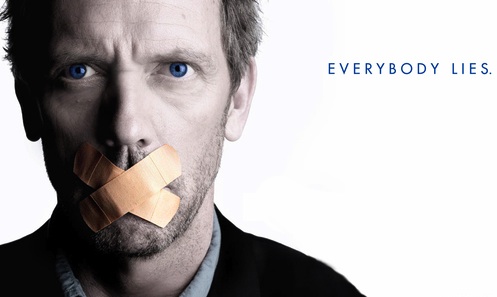#159: “Everybody Lies”
One of the most famous liars in history was a man named Karl Friedrich Hieronymus Freiherr von Münchhausen or simply ‘Baron Münchhausen’. Born in Bodenwerder in 1720, he was a German nobleman who spent a decade of his life serving in the Russian military. After his retirement in 1750, he returned to his hometown where he acquired a reputation for his witty but exaggerated tales of his own heroism. Now it could be argued that when a person lies, they undermine trust in society but the Baron’s stories were very entertaining and didn’t harm anyone. In fact, the Baron was well known to be an extraordinarily honest and honorable man when it came to his business dealings and personal life. He simply knew that the people would rather hear an entertaining fiction than the mundane truth. The cruel irony for the Baron was that as his stories circulated, they took on a life of their own, and with each generation of authors, the vast majority of the stories published as ‘The Surprising Adventures of Baron Munchausen’ were fabricated, but not by him.
history was a man named Karl Friedrich Hieronymus Freiherr von Münchhausen or simply ‘Baron Münchhausen’. Born in Bodenwerder in 1720, he was a German nobleman who spent a decade of his life serving in the Russian military. After his retirement in 1750, he returned to his hometown where he acquired a reputation for his witty but exaggerated tales of his own heroism. Now it could be argued that when a person lies, they undermine trust in society but the Baron’s stories were very entertaining and didn’t harm anyone. In fact, the Baron was well known to be an extraordinarily honest and honorable man when it came to his business dealings and personal life. He simply knew that the people would rather hear an entertaining fiction than the mundane truth. The cruel irony for the Baron was that as his stories circulated, they took on a life of their own, and with each generation of authors, the vast majority of the stories published as ‘The Surprising Adventures of Baron Munchausen’ were fabricated, but not by him.
I lie for a living. Whether I am creating a fictional work, helping to brand the children’s clothing store I own or representing a rivered straight, it’s all storytelling ergo it’s all lies. And as someone who lies for a living but also possesses a conscience, I often give pause to the ethics of my situation. Aristotle argued that lying is a perversion of the natural faculty of speech, the point of which is to communicate accurately the thoughts of the speaker but with all due respect, Aristotle was an idiot whose ideas, while certainly comprehensive, were responsible for the greatest wrong turn in the history of human thought. Lying is not intrinsically wrong. In the words of Gregory House M.D., ‘everybody lies’ and we do so for a variety of reasons.
As a writer, I invent fictions that have beginnings, middles and ends. This narrative structure is the way the human mind orders information. This is comforting for the reader as we are story-telling organisms that, at both an individual and societal level, lead storied lives. Stories are effective learning tools because the reader becomes engaged and therefore not only remembers but often becomes capable of imagining new perspectives, enjoying what can be a transformative, empathetic and even cathartic experience. The problem, however, is that stories are contrived. They manipulate us into behaving in a way that other people think we should. They are artifice and while their peddlers include philosophers, scientists and civil rights lawyers, they also include self-serving politicians, genocidal megalomaniacs and the nefarious CEOs of profit-hungry multi-nationals.
Look at the world of marketing and advertising where the idea of storytelling has been extended to the consumer’s relationship with a product. When Coca-Cola put their marketing geniuses to work on an ad campaign about ‘happiness’, their real objective is to make you feel bad about who you are and what your life is like. This wouldn’t necessarily be a bad thing if Coca-Cola wanted you to re-examine your life, search for meaning and make changes for the greater good. But they don’t. They simply want you to buy more of their caffeinated sugar-water even though you are probably depressed, obese and suffering from type-2 diabetes. It is not the lie that is harmful, it is the objective of the lie.
The objective of my lies at the poker table is to win other people’s money. This is not a particularly noble sentiment I know but when people sit down at the poker table, they understand the nature of the game and they understand the risks. Poker players are snake oil salesman but unlike cans of Coca-Cola, our schtick is labeled ‘snake oil’. Off the felt, most of us are unscrupulously honest, just like Baron Münchhausen, but on the felt, we are at war with out opponents and in the words of Sun Tzu, “All warfare is based on deception”. So we tell stories; sometimes simple ones and sometimes complex multi-street ones that have beginnings, middles and ends. Friedrich Nietzsche suggested that those who refrain from lying do so only because of the difficulty involved in constructing the lie. The best poker players not only know how to construct the lie; they know how to maintain and sell it.
If I may add to the famous lines from Sir Walter Scott:
“Oh, what a tangled web we weave / When first we practice to deceive.”
”Unless we happen to be master-weavers / With power to turn sceptics into believers”
